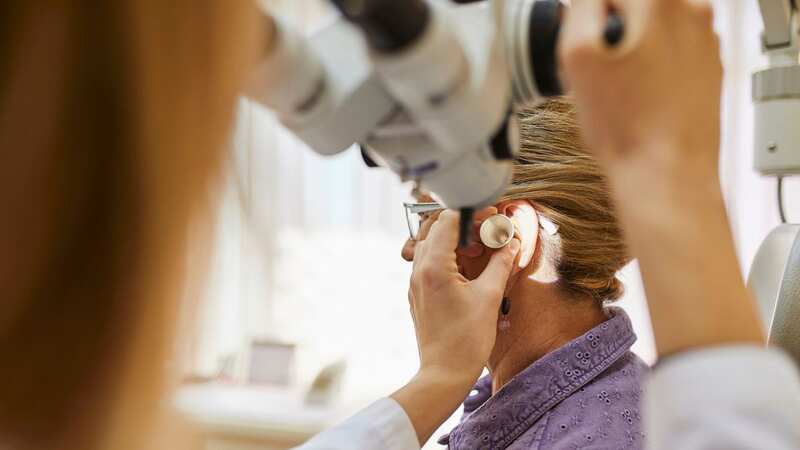NHS to axe free treatment for potentially painful condition for millions

Nearly 10 million people in England are no longer able to access free earwax removal services offered by the NHS, the Royal National Institute for Deaf People (RNID) has warned.
The charity - which provides support to the 12 million people in the UK who are deaf, have hearing loss or tinnitus - said there was "no medical reason" for withdrawing services across parts of England since 2019.
It also warned that those who can't afford private treatment were turning to self-removal methods considered to be "dangerous". The government said GPs can still refer patients to a specialist service if the problem is linked to hearing loss.
Roughly 2.3million people in the UK will require earwax treatment each year, according to the NHS - particularly those who are older, use hearing-aids, or have a learning disability.
When excess wax builds up in the ear canal and is not removed, it can result in painful symptoms, including earaches, tinnitus and even hearing loss. It can also interfere with certain hearing aids, causing a whistling sound to come from the device. Removal of excess wax is usually needed before a hearing test.
 Teachers, civil servants and train drivers walk out in biggest strike in decade
Teachers, civil servants and train drivers walk out in biggest strike in decade
The National Institute of Health and Care Excellence advises that wax removal services should be available in GP surgeries, or other local ear clinics. The two main removal methods include microsuction, where a small vacuum is used to suck out the wax, or electronic irrigation, which uses a machine that gently pumps pressurised water into the ear.
The RNID's Freedom of Information request to all 42 integrated health boards across England found that of the 40 that responded, 18 funded a full service, 15 limited eligibility or did not offer the service in all of their GP surgeries, while seven boards commissioned no treatment at all.
Crystal Rolfe, director of health at the RNID said: "For the 10million people who live in areas where there is no provision, the only option is to pay for it, which we know can cost up to £100 for just one procedure. Previous research shows that 26% of people say they wouldn't be able to afford that, partly because some people need to have earwax removed several times a year."
The RNID says that while it was aware that NHS boards are limited by financial constraints, it is not an acceptable enough reason to limit services to patients. Some patients have been told the service is no longer available, despite GPs being contracted to run it, it said.
The charity fears people will turn to self-removal methods that are not considered safe, advising to "never put anything in your ear smaller than your elbow".
Other objects that are considered to be dangerous tools for self-removal include cotton buds, paper clips, hairpins, and even fingers.
Ms Rolfe added: "For most people, it's a self-cleansing mechanism and the wax just comes out on its own. If it's got stuck in your ear, then you should go and see a GP, who might sometimes suggest olive oil drops in the first instance."
Over-the-counter commercial drops may be used as an alternative treatment for a build-up of earwax, but there is "little evidence" that the issue will fully resolve in more than one in every five people, the RNID says. Drops would also not be recommended for anyone who has suffered a recent infection, or had an operation. Those patients are advised to first speak to a pharmacist.
The government says it is the responsibilty of local health boards to commission services based on the needs of patients in their area, adding that GPs are still free to refer patients to a specialist audiology service for symptoms linked to hearing loss.
A spokeswoman for NHS England said information about how to treat earwax safely at home can be found on the NHS website.
 Greggs, Costa & Pret coffees have 'huge differences in caffeine', says report
Greggs, Costa & Pret coffees have 'huge differences in caffeine', says report
Read more similar news:
Comments:
comments powered by Disqus

































